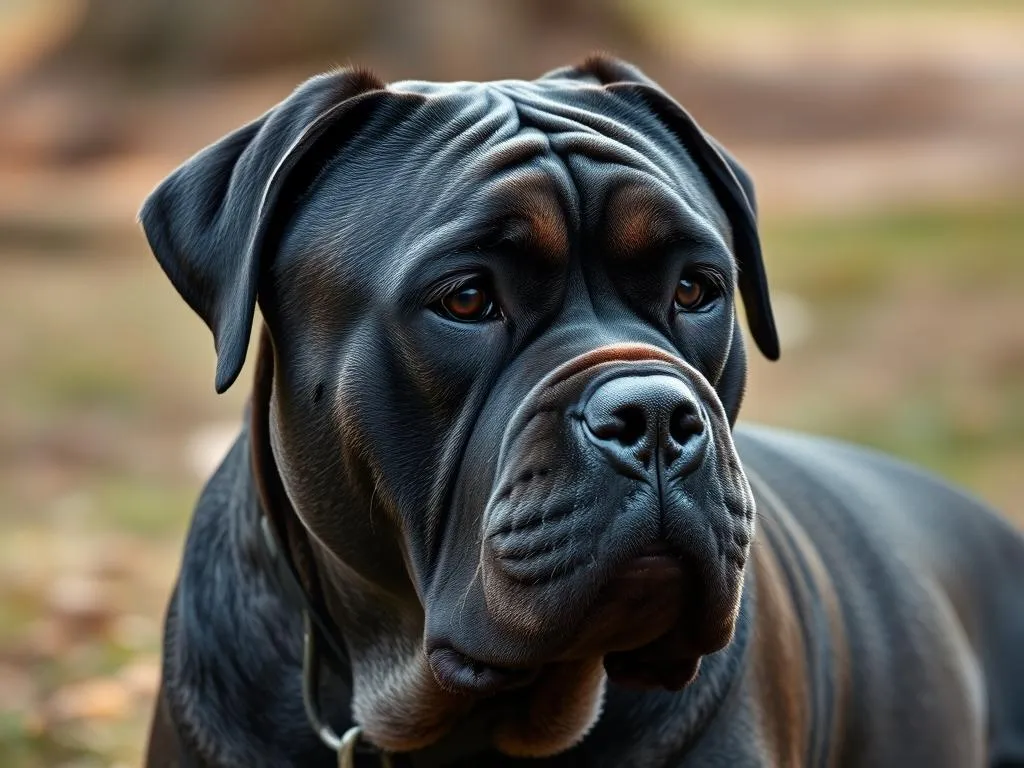
Introduction
The Cane Corso is a powerful and majestic breed, well-regarded for its loyalty, intelligence, and protective instincts. Originating from Italy, this dog has a rich history that intertwines with ancient cultures. Understanding the Cane Corso facts not only enhances our appreciation of this breed but also aids in responsible pet ownership.
When considering a dog, knowledge about the breed is crucial. It informs potential owners of the breed’s needs, personality, and potential challenges. This understanding allows for informed decision-making that can lead to a fulfilling companionship. This article aims to provide comprehensive facts about the Cane Corso, assisting current and prospective owners in gaining a deeper understanding of this magnificent breed.
History and Origin of the Cane Corso
Ancient Roots
The history of the Cane Corso can be traced back to ancient Rome, where they were primarily used for hunting and guarding properties. Their ancestors, the Roman Molossus dogs, were formidable canines that assisted in various tasks, including herding livestock and protecting their owners. These dogs were bred for strength and endurance, making them exceptional working dogs.
In addition to their hunting capabilities, Cane Corsos played a significant role in warfare, serving as battle dogs for Roman soldiers. Their size, strength, and loyalty made them ideal companions in combat situations. Over the centuries, as civilization progressed, the breed adapted to various roles, becoming indispensable to farmers and landowners for protection against intruders and wild animals.
Breed Development
As time passed, the Cane Corso experienced several evolution stages. In the 20th century, the breed faced near extinction due to changes in farming practices and the decline of rural life in Italy. However, passionate breeders worked diligently to revive the breed in the 1980s. By carefully selecting breeding pairs, they restored the Cane Corso to its former glory, emphasizing its working abilities and distinct physical characteristics.
Modern breeding practices have ensured that the Cane Corso retains its historical traits while also adapting to the needs of contemporary families. Today, this breed is recognized by various kennel clubs worldwide, solidifying its status as a beloved companion and protector.
Physical Characteristics
Size and Weight
One of the most striking features of the Cane Corso is its impressive size. Males typically stand between 25 to 27 inches tall at the shoulder and weigh between 110 to 150 pounds. Females are slightly smaller, standing around 23 to 25 inches and weighing between 80 to 110 pounds. This substantial build contributes to their powerful presence and ability to perform various tasks.
Coat and Color
The Cane Corso has a short, dense coat that is easy to maintain. Common colors include black, fawn, gray, and brindle. Some dogs may have a small white patch on the chest or toes. Grooming needs are minimal, requiring only regular brushing to manage shedding and keep the coat healthy.
Distinctive Features
The breed is characterized by its muscular build, square-shaped head, and strong jaw. Their ears are often cropped, giving them a distinct look, although many owners choose to leave them natural. The Cane Corso has expressive eyes that convey intelligence and loyalty, making them not only formidable but also endearing companions.
When compared to similar breeds, such as the American Pit Bull Terrier or the Rottweiler, the Cane Corso stands out due to its size and unique head structure. Its athletic build and confident demeanor further distinguish it within the working dog group.
Temperament and Personality
General Temperament
The Cane Corso is known for its loyal and protective nature. They form strong bonds with their families, often displaying a gentle demeanor towards those they love. However, they can be wary of strangers, making them excellent watchdogs. Their intelligence and eagerness to please make them relatively easy to train, but they require consistent and firm guidance.
Socialization Needs
Early socialization is crucial for the Cane Corso to develop into a well-rounded adult. Exposing them to various people, environments, and experiences during their formative months helps reduce the likelihood of fear or aggression towards unfamiliar situations. Engaging them in puppy classes or group training sessions can be particularly beneficial.
Interaction with Family and Children
Cane Corsos are generally good with children, particularly when raised together. Their protective instincts extend to family members, and they often serve as gentle giants around kids. However, supervision is essential, especially with younger children, to ensure safe interactions. Introducing a Cane Corso to other pets requires patience and proper management, as their size and strength can intimidate smaller animals.
Health and Lifespan
Common Health Issues
Like all breeds, Cane Corsos can be prone to specific health issues. Some common concerns include hip dysplasia, elbow dysplasia, and certain heart conditions. Regular veterinary check-ups and a proactive approach to health can help mitigate these risks.
Preventative Care
Routine veterinary care is vital for maintaining a Cane Corso’s health. This includes vaccinations, regular check-ups, and preventative treatments for parasites. A balanced diet tailored to their age, size, and activity level is also essential for keeping them healthy. Daily exercise is crucial for maintaining their physical and mental well-being, as this breed is known for its energy and strength.
Lifespan Expectations
The average lifespan of a Cane Corso ranges from 9 to 12 years. Factors such as genetics, diet, exercise, and overall care contribute to their longevity. Providing a healthy lifestyle can enhance their quality of life and potentially extend their years with you.
Training and Exercise Requirements
Training Basics
Obedience training is critical for a Cane Corso, as it helps establish boundaries and reinforces good behavior. Positive reinforcement methods, such as treats and praise, are effective with this intelligent breed. Consistency is key; ensuring rules are applied uniformly helps the dog understand expectations.
Exercise Needs
Cane Corsos are active dogs that require daily exercise to stay healthy and happy. A minimum of 60 to 90 minutes of activity is recommended, which can include walks, runs, and playtime. Engaging activities such as agility training or obedience competitions can also provide mental stimulation.
Behavioral Challenges
While Cane Corsos are generally well-behaved, they can face behavioral challenges if not properly trained or socialized. Common issues include stubbornness and potential aggression towards unfamiliar dogs. Early intervention through training and socialization can address these challenges, ensuring your Cane Corso becomes a well-mannered member of the family.
Living Conditions
Best Environment for a Cane Corso
The ideal living situation for a Cane Corso is a spacious home with a secure yard. While they can adapt to apartment living, they require ample outdoor time to burn off energy. A house with a fenced yard is optimal, allowing them the freedom to explore safely.
Compatibility with Other Pets
Cane Corsos can coexist with other pets, but introductions should be handled carefully. Their protective nature may lead them to be territorial, especially with smaller animals. Gradual introductions and ensuring positive experiences can help foster a harmonious multi-pet household.
Adoption and Ownership Considerations
Choosing a Cane Corso
Before adopting a Cane Corso, consider your lifestyle and experience with dogs. This breed requires an owner who can provide firm, consistent training and ample exercise. Evaluate your living situation and whether you can meet the breed’s needs.
Finding a Reputable Breeder or Rescue
Research is key when seeking a reputable breeder or rescue organization. Look for breeders who prioritize health testing and provide a nurturing environment for their dogs. Breed rescues often have knowledgeable staff who can assist in matching you with the right dog for your family.
Cost of Ownership
Owning a Cane Corso involves initial costs, such as adoption fees or purchase prices, which can range from $1,000 to $2,500. Ongoing expenses include food, grooming, veterinary care, and training. Budgeting for these costs helps ensure that you can provide a stable and loving home for your new companion.
Conclusion
The Cane Corso is a breed filled with history, strength, and loyalty. From their ancient origins as guardians and hunters to their modern role as cherished family members, understanding the essential Cane Corso facts is vital for any prospective owner.
Their impressive physical characteristics, combined with their gentle temperament and protective instincts, make them unique companions. With the right care, training, and socialization, a Cane Corso can become a beloved member of your family for many years. As you embark on this journey, remember to embrace responsible ownership and enjoy every moment with your majestic canine friend.









